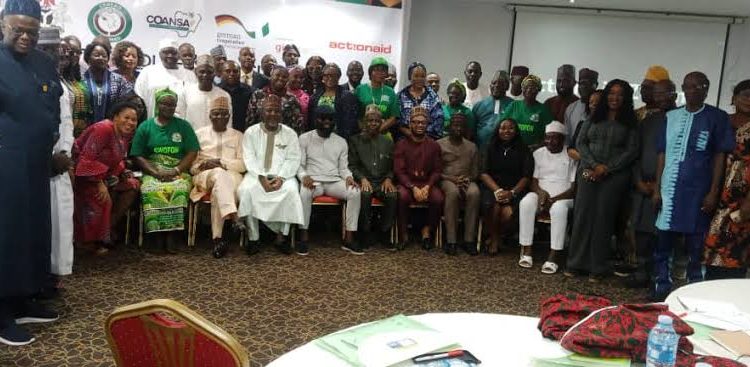The National Assembly has announced plans to convene a national security summit to confront the growing wave of insecurity that is threatening lives, displacing communities, and disrupting food production across Nigeria.
This was disclosed in Lagos by Senator Garba Maidoki, a member of the Senate Committee on Agricultural Production and Rural Development, during a Stakeholders’ Consultative Meeting on the 2026 Agriculture Budget. The meeting, organised by ActionAid Nigeria, German International Cooperation (GIZ), and the Ministry of Budget and Economic Planning, focused on strengthening stakeholder engagement around agricultural policies and budgeting.
Senator Maidoki expressed deep concern over the escalating insecurity that has led to widespread displacement, the destruction of farmlands, and rising food insecurity. He warned that without swift intervention, the crisis would continue to undermine Nigerians’ access to food, nutrition, and sustainable livelihoods.
To address this, the lawmaker revealed that the National Assembly will host a national security summit in Lagos in the coming months. The summit will bring together security agencies, policymakers, and the general public to draft a new security architecture for the country. Public hearings will be conducted across all geopolitical zones, with Lagos serving as one of the key venues for gathering citizen input.
Maidoki explained that contributions from the summit would form the foundation of a new blueprint to be handed over to security agencies for implementation. According to him, the goal is to reflect the genuine yearnings of Nigerians, promote peace, and develop targeted solutions to protect farmers and restore rural livelihoods.
He stressed that the fight against insecurity must be directly linked to efforts aimed at achieving national food security, noting that the agricultural sector cannot thrive in the absence of safety and stability.
The consultative forum also highlighted key agricultural policies such as the National Agricultural Technology and Innovation Policy and the National Agricultural Development Fund. Discussions examined how these frameworks align with the Comprehensive Africa Agriculture Development Programme (CAADP) and contribute to national and continental goals around innovation, technology adoption, and financing.
Participants also reviewed Nigeria’s preparations for its biennial reporting to the African Union in line with the Kampala Declaration and the country’s 2025 commitments.
The event served as a reminder that improving Nigeria’s food systems requires more than budgetary allocation—it demands urgent attention to the insecurity that continues to choke rural development and productivity.










